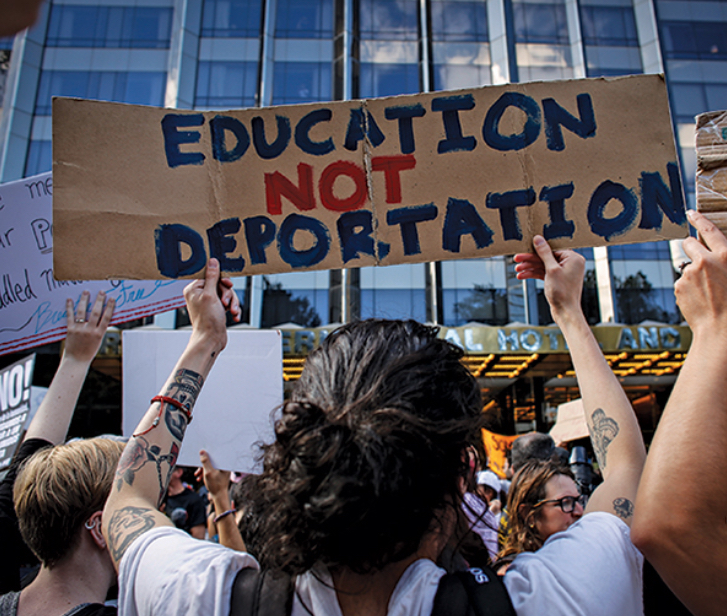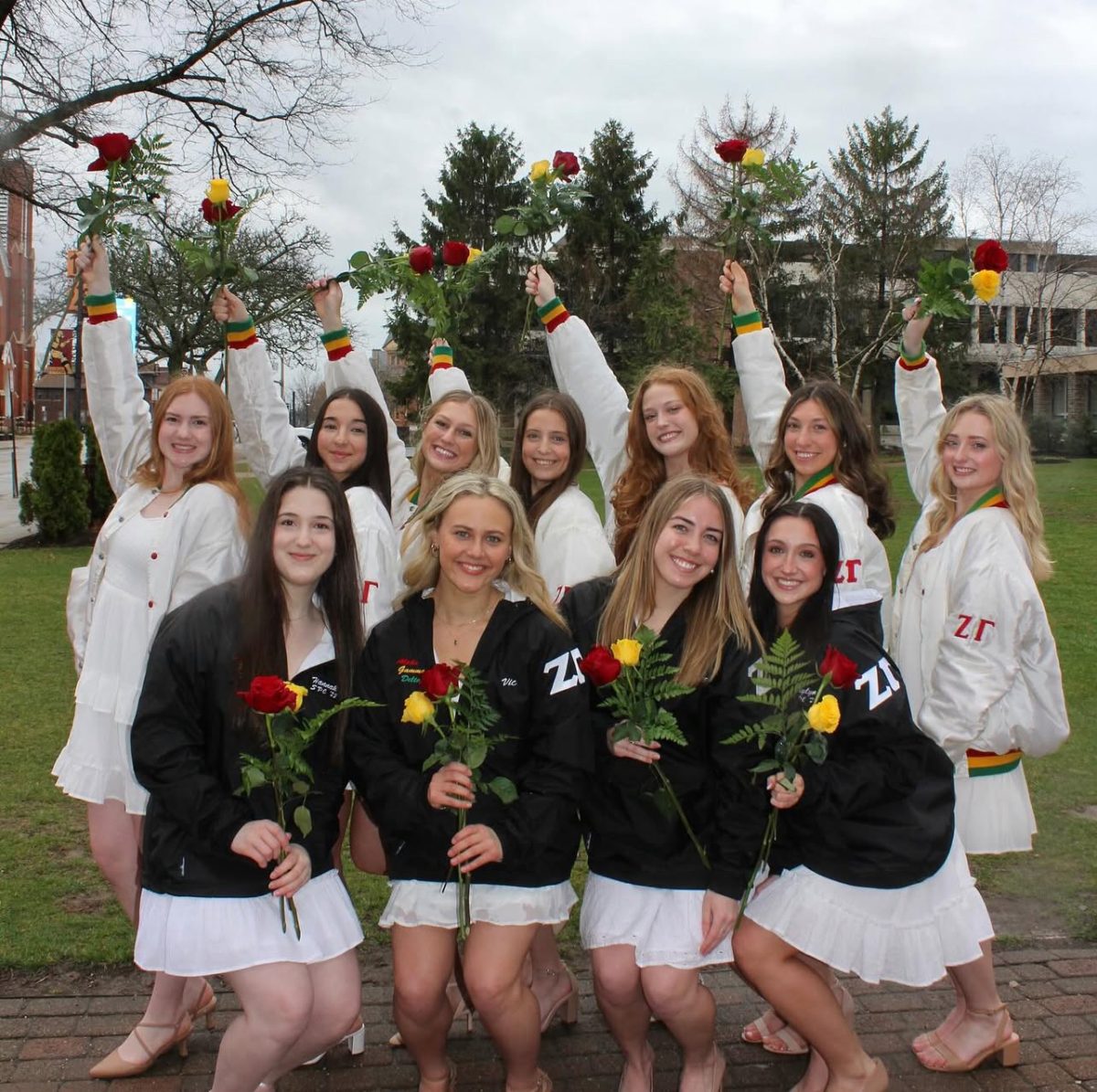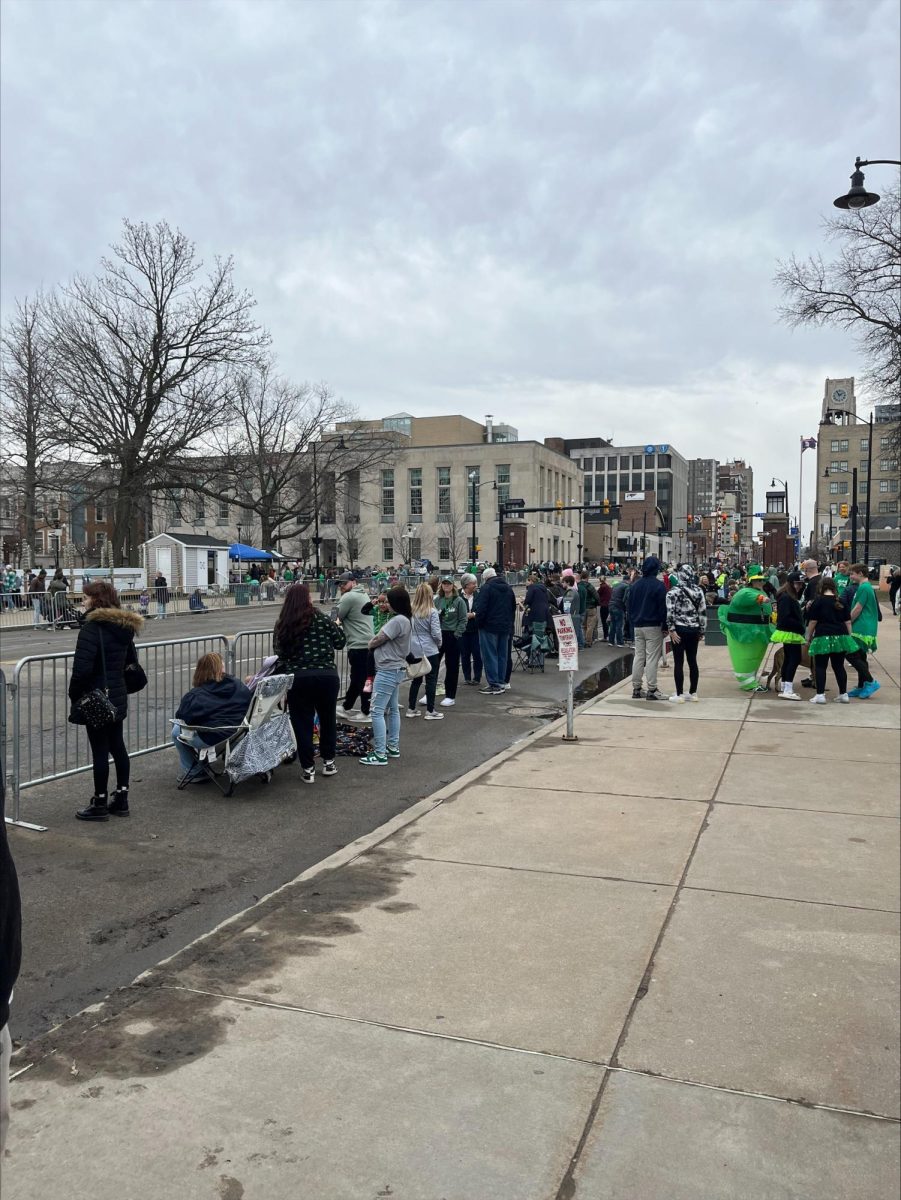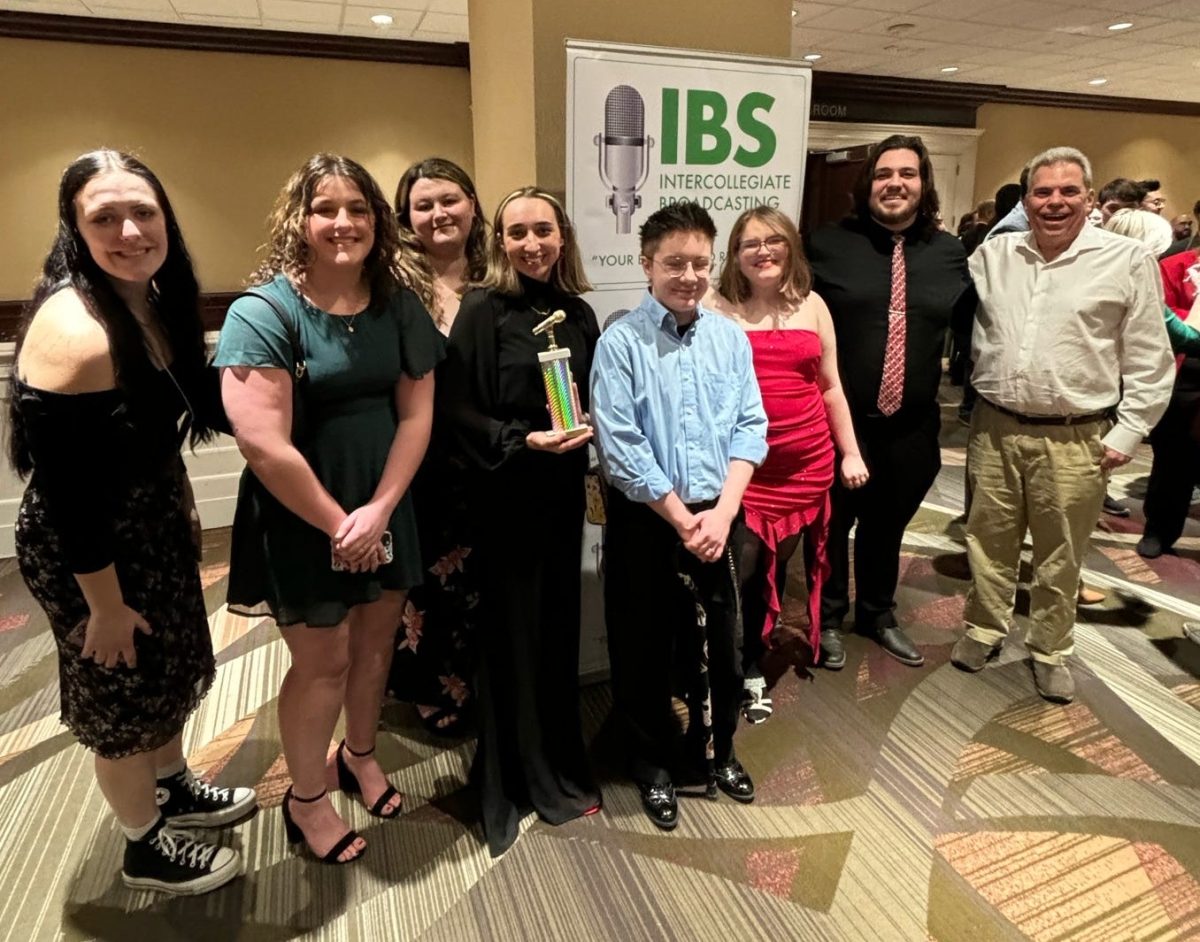Imagine having an officer come to your door one day and tell you along with your family, to leave your country. They threaten to burn down your house and kill you if you don’t. Living in a first-world country, this may be hard to imagine — but for 22-year-olds Amire Latifi and Vjosa Loshaj, this was reality.
Latifi and Loshaj came to Erie through the International Institute when they were forced out of their native country of Kosova, or “Kosovo” as it is called by The West.
“Kosova is the second newest country after South Sudan. It was a province of Yugoslavia at the time, now called Serbia. The Serbians claimed it for themselves. Yugoslavia was mostly Christian while the Kosova province was mostly Muslim,” Loshaj said.
In 1999, the Serbians invaded Latifi’s hometown, Gjilan, in May and told her and her family they had 24 hours to leave the country. Latifi said it happened without warning.
“We heard it happening in other cities around, like Drenica, but we lived in a really small town of around 400-500 people. We didn’t expect it,” Latifi said.
“The Serbs wanted to take over. They wanted the Serbians to stay and kick out the Albanians. They threatened to burn down our houses if we stayed. I know people who took their scarves off to try and blend in,” Latifi said.
She compares the tragedy to World War II.
“They cut my hair so I looked like a boy. They raped women. It was like WWII in Japan. It was the same thing, but it’s not known since it’s a small country,” Latifi said.
She remembers hiding in her uncle’s basement when the Serbians came to take her and her family.
“My cousin, who was mute, saw them coming and warned us, and we went to my cousin’s house and hid underground. It was all because of a baby that started crying that they found us. Then the dogs came and divided the men and women. I remember my grandma grabbing a Serbian officer and saying ‘please don’t kill my son,’” Latifi said.
They were taken to a taxi station where they were told to leave the town or be killed. However, Latifi was not afraid.
“I wasn’t scared. I was intrigued. I wanted to be one of them wearing uniforms and holding guns – I was nine years old,” Latifi said.
The Latifi family went back to their house, where they played “hide under the sofer” in case the officers were to come again. The sofer is their equivalent to the dining table.
They spent the night packing very little and left the next morning for Macedonia.
Loshaj’s story is not much different from Latifi’s.
The Serbians came to take Loshaj and her family on her birthday.
“You could see the Serbian tanks from far away,” Loshaj said.
The Loshaj family moved from house to house for months until they, too, ended up in Macedonia. There, they stayed with a family for half a year.
Upon escaping to refugee camps in Macedonia, both Loshaj and Latifi, along with their families, lived in tents for the next couple of months.
“Since it was so crowded in the tent, I slept outside and then got soaked because it rained,” Latifi said. “Imagine living in a little tiny tent for 16 people.”
After months living in the tents, their parents got the chance to move to another country. Both families got chosen to go to the United States.
The Latifi family was initially brought to Fort Dix, a military base in New Jersey. They got acquainted with a family that was later taken to the International Institute in Erie. The family requested the institute to bring the Latifi family to Erie and within a month there was a bus full of the Latifi family headed to Erie.
The Loshaj family had already been there a month when the Latifi family had arrived. They were excited for everything that awaited them in the United States.
“It was like our golden ticket. We came in 1999 and didn’t know a word of English. I picked it up really fast. I went to ESL classes for only one year. I felt so smart.” Loshaj said.
“The first thing I remember saying was ‘are you OK?’ when a girl had gotten hurt, and that’s only because everyone around her was saying that, so I did, too.”
The change in the environment was drastic for both the families.
“It was weird because we never had houses close to each other,” Loshaj said.
It was different for Latifi’s family, many of them went back to Kosova when the war ended, including her grandparents.
If given the choice, both Latifi’s and Loshaj’s parents would move back to their homeland if it were not for their kids.
“My parents want to move back, but all their kids are here–it’s for the better,” Latifi said.
“My parents sacrificed everything to be here. My dad used to be a chemistry teacher and did what he loved. My mom was a doctor. Then they came to America where their degrees didn’t count. My dad works as an inspector and my mom works at Wal-Mart. It breaks my heart,” Loshaj said.
“I wanted to go to school a little farther away, but my mom just looked at me and said ‘please don’t leave me.’”
Both Loshaj and Latifi are happy for the opportunity they have been given in America and are making sure they finish their education and make their parents proud.
They are both seniors who attend Behrend. Latifi is majoring in the general arts and sciences and Loshaj in international business and finance. They both hope to continue their education and at least get their masters.
Even though the war kicked Albanians out of their home country, it has led Loshaj and Latifi to greener pastures. The war is bittersweet for both of them.
“If things didn’t happen the way they did, we wouldn’t be here. I’m happy to have gotten the experiences. It makes me more curious and open minded. It gives me more advantages and perspectives,” Latifi said.
“It’s different here because in Kosovo, you would make about $2,000 a year even after working 12 hours a day. The war was a blessing in disguise,” Loshaj said.






